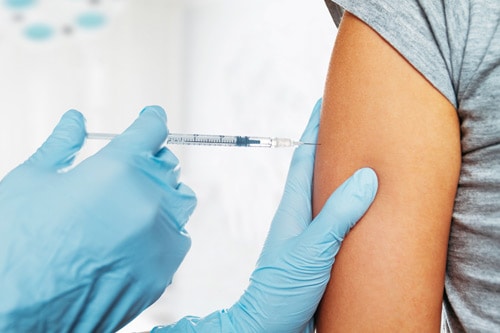
Hopes that a vaccine against genital herpes may finally be on the horizon after decades of failed R&D have been rekindled by a new candidate heading for clinical trials.
The vaccine – developed by a team led by University of Pennsylvania researcher Harvey Friedman – has been shown in preclinical studies to have completely prevented genital lesions in mice and guinea pig models of the infection.
Genital herpes is an incurable, contagious sexually-transmitted infection caused by Herpes simplex virus-2 (HSV-2) that causes a lifetime of painful outbreaks. While symptoms can be managed with antiviral drugs, patients tend to suffer recurrent outbreaks, in some cases several times a year.
The virus is spread when patients have symptoms, so a key goal is to prevent outbreaks occurring. Worldwide genital herpes affects a massive 400 million people, and it’s widely held that an effective vaccine would become a blockbuster product for its developer.
The UPenn vaccine – which is subject to a license agreement with German biotech company BioNTech – is based on messenger RNA coding for three HSV-2 glycoproteins encapsulated in a lipid nanoparticle capsule, and so differs from older shots that have tended to be based on modified or inactivated HSV-2.
Aside from protecting against lesion development, the vaccine also reduced viral shedding, with vaginal cultures completely clear of the virus in 98% of mice and 80% of guinea pigs. For comparison, a control shot based on the three proteins themselves prevented viral shedding in 73% and 50% of animals, respectively.
The results of the study are published in Science Immunology.
“Based on these results, it is our hope that this vaccine could be translated into human studies to test both the safety and efficacy of our approach,” said Friedman.
“Along with physical symptoms, HSV-2 takes an emotional toll,” he added. “People worry over transmission of the disease, and it can certainly have a negative effect on intimate relationships.”
While still in the early stages of the project, UPenn and BioNTech are hoping to succeed where several other vaccine developers have failed.
Last year, Vical abandoned its VCL-HB01 candidate for HSV-2 infections after it failed a mid-stage clinical trial. The company blamed a lower-than-expected relapse rate in the placebo group, but opted nonetheless to drop the programme altogether.
In 2017, Gonocea Biotech also called time on in-house development of its GEN-003 candidate after it reported disappointing viral shedding data in a phase 2b study, but offered it up for licensing to another company. So far it doesn’t appear to have had any takers.
GlaxoSmithKline, Agenus and Vir Biotech have also abandoned HSV-2 vaccines that had reached the clinical trial stage in the last few years.




